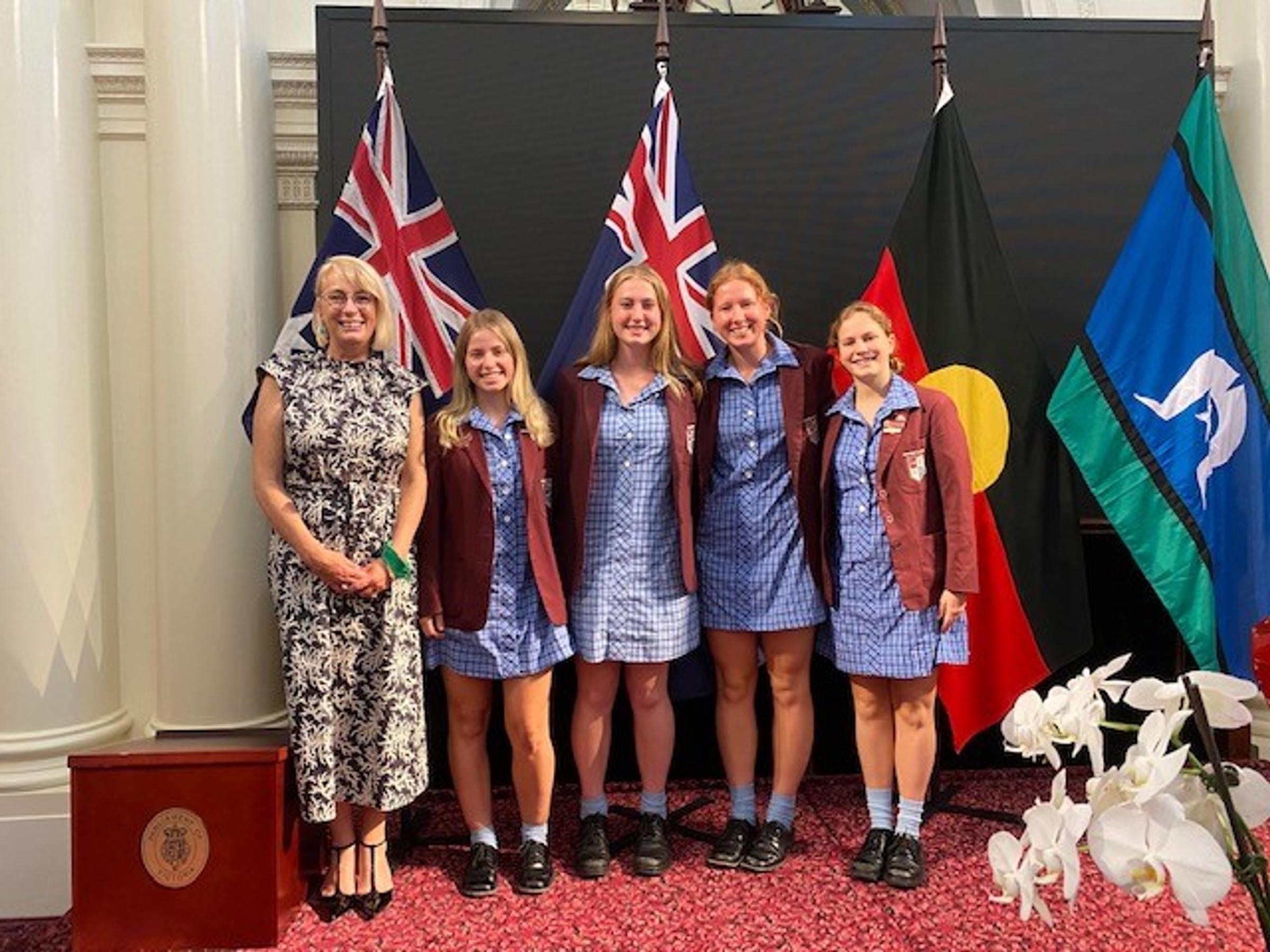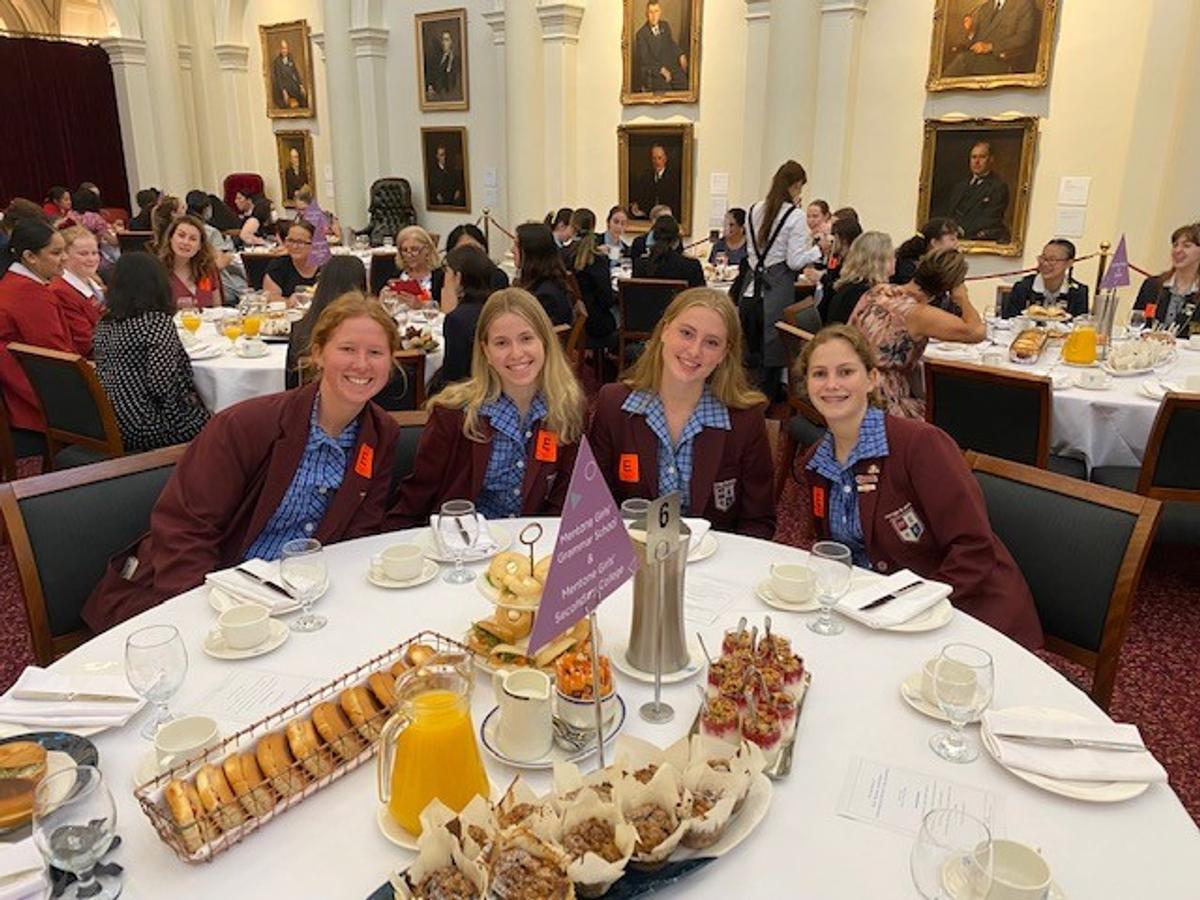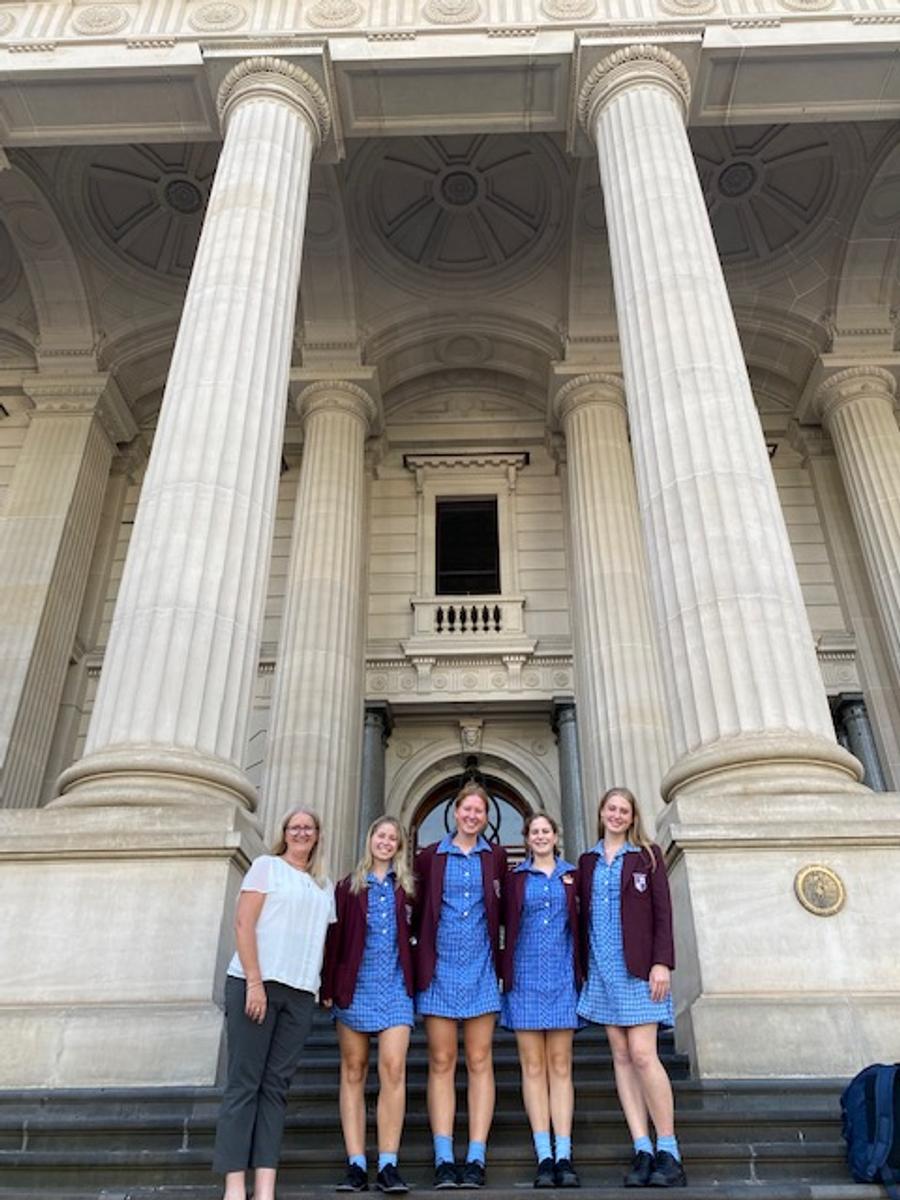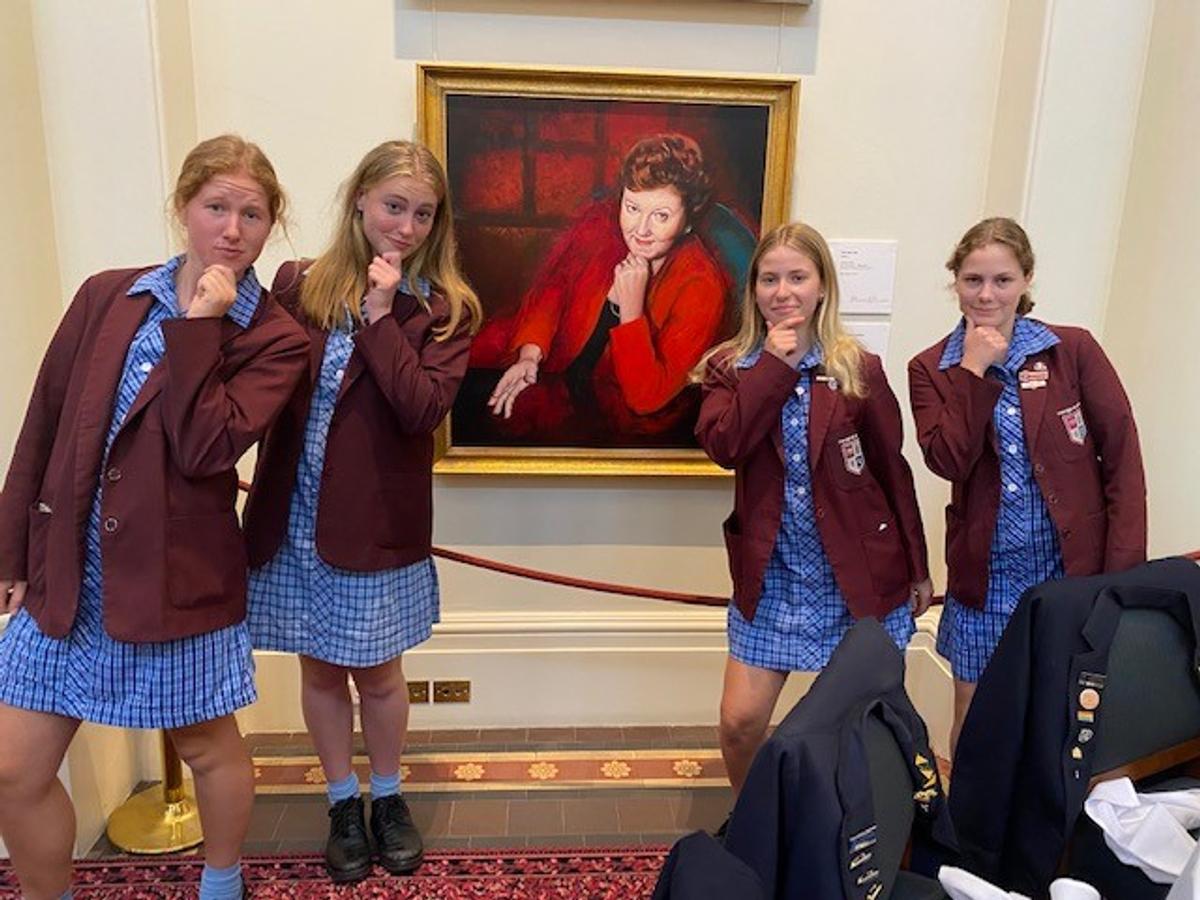Student Leadership
International Women's Day 2022

Student Leadership
International Women's Day 2022
On Friday 4 March our team of four senior leaders and Ms Wendy Harvey attended the International Women’s Day Breakfast at the Victorian Parliament House where we commemorated the cultural, political and socio-economic achievements of women of the past and present. It was an amazing experience to hear from all sorts of inspirational women and their achievements in male dominated industries. Furthermore, we learnt so much about Victorian women in history who stood up for women’s rights and helped turn Melbourne into one of the most liveable cities in the world.


This year's theme for IWD is ‘break the bias’ which is coupled with a symbol of two arms making a cross. This symbol aims to call out gender stereotypes, discrimination and bias to invision and create a world of equality. Though our society is slowly developing there is still room for so much growth.


The Lord Mayor of Melbourne Sally Capp spoke about many influential women in Melbourne's history that we don’t often hear about. Zelda D’Aprano, was a leading feminsit activist of the 1970’s who advocated for equal pay. As a dental nurse with a range of jobs in factories, hospitals and as a clerk at the Meatworkers Union, Zelda had been paid a fraction of her male co-workers salary. In these jobs she asked for equal pay, and often was sacked for her impertinence. A court case brought by the Meatworkers Union to the Court of Arbitration about an Equal Pay test resulted in changes to women’s pay. The court ruled that equal pay would apply where a woman was doing exactly the same work as a man. In the meat industry, like most industries, there were very few women doing the exact same work as men and were relegated to supporting roles. So Zelda chained herself to the doors of the Commonwealth Building in protest.




Hearing about women such as Zelda inspired us all to consider what we could do in our daily lives as leaders to overcome the issues women still face. As Zelda once said “today it was me, tomorrow there will be two, then four women, and it will go on until all women are demanding their rights.” We learnt how one's willingness to stand up for their beliefs can have an effect on many and inspire others to ‘break the bias’.
Another name that is often forgotten is Vida Goldstein. As Australia became a unified nation in 1901, the vast majority of Australian women won the right to vote and the right to stand for election. Vida was a driving force behind this historic change. She was revered internationally as the leader of the “votes for women” movement and was passionate about issues that affected “mothers, wives and children,” including economic and social policies. She was among the first four women to stand for Federal Parliament. She lost, and tried four more times. Again without success. However, with each campaign she expressed her concern and fired up national conversation about wage equality, the right to be safe and free from violence in the home, women’s rights in general and women's responsibility to step into politics. 100 years later and these issues are still top of the agenda in the fight for respect and gender equality.
The walls of the prestigious Queen Hall of the Victorian Parliament are covered by portraits of previous Victorian Premiers. Sitting there we could help but notice how the walls lacked women's representation. Although outnumbered by the portraits around us, we were sitting in a room surrounded by hundreds of incredible women who felt empowered to continue to help ‘break the bias’. It was an incredible experience to meet other inspiring leaders from other girls' schools who also have the same ambitions and goals.
Olivia Gryszan, Isobel Long, Amberley Powell and Samantha Martin (year 12)
Over the past week or so in Personal Learning, years 7 to 9 students have been exploring what IWD is about, why the day is so important globally and what it means to the students at MGSC. Student were asked to demonstrate their thoughts or their message to others in a form of their own choosing. Some chose to create a short video, a TV screen message, a poster or to write. Here is one example from one of our Year 9 Personal Learning.
Pink and Blue - Gender Stereotypes
Once we learn to walk, we also learn another thing, the difference between femininity and masculinity. In the clothes we buy, the toys we play with and the colours we are taught to like, we are told how to identify our gender, and how we must resonate with it. Pink with pink, blue with blue. These generalisations are the root of how society continues to promote these beliefs and integrate it into our culture, without ever realising the fact that these beliefs are simply misguided lies.
When I was in Primary School, sometimes the teachers would ask the students to move chairs or other objects for events. They would simply ask “which strong boys would like to help with these chairs?” While the boys moved the chairs, the girls and I would be left wondering why we weren’t asked at all. Schooling has a dramatic effect on who we become as a person, and the values we uphold. So when a teacher remarks to “stop playing like a girl, man up” the immediate association is that femininity is equivalent to weakness. School environments should be unbiased and supportive, not pitting students against one another. If we are ever to truly end these harmful stereotypes, the values we should be learning should be equal. When looking at these stereotypes, we can see that these affect women a lot more than women. Common stereotypes are that women are “weak” or “dumb” and that they should “belong in the kitchen.” While they may look harmless on the outside, these have massive effects on the livelihood of women. For years women have been undermined due to their gender, so when such comments truly come to light, they affect everyone of us. The perceptions of women affect their workplace, school environment and mindset. When their ambitions and health are overshadowed because we are “weak” is simply disgusting.
So what can we do? It’s hard to look at gender stereotypes from one point of view. So I ask all of you, to please look and see how these affect everyone. We must deconstruct this and understand that these stereotypes simply aren’t true. We need to create better spaces, like schools, and make them truly unbiased, and to teach everyone that our perception of women has been eclipsed. If we can even try to make a change, we can help millions of women all over the world. So please, in any way, break the stereotype. Prove that your achievements, health and wellbeing are more important than being called “weak” or “belonging in a kitchen.”
Gabby Taylor (year 9)